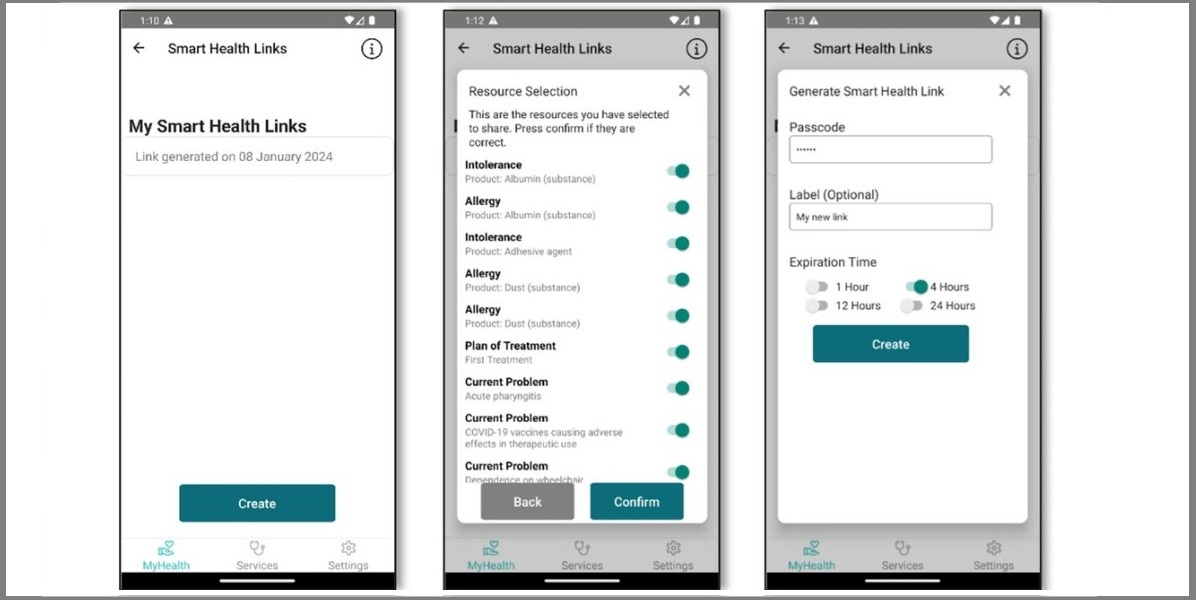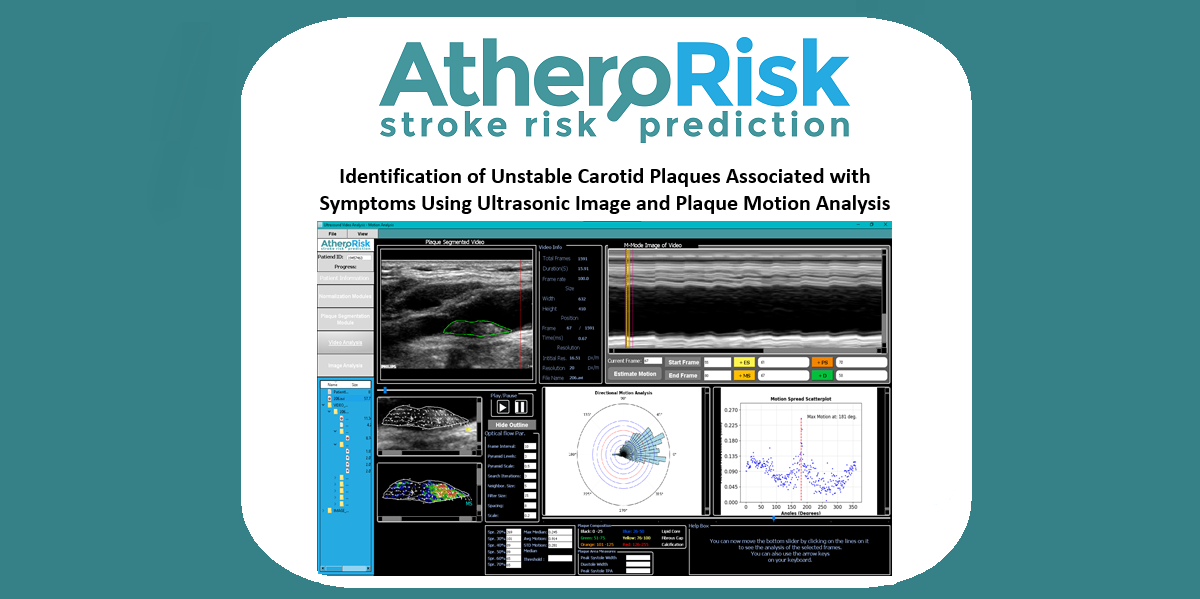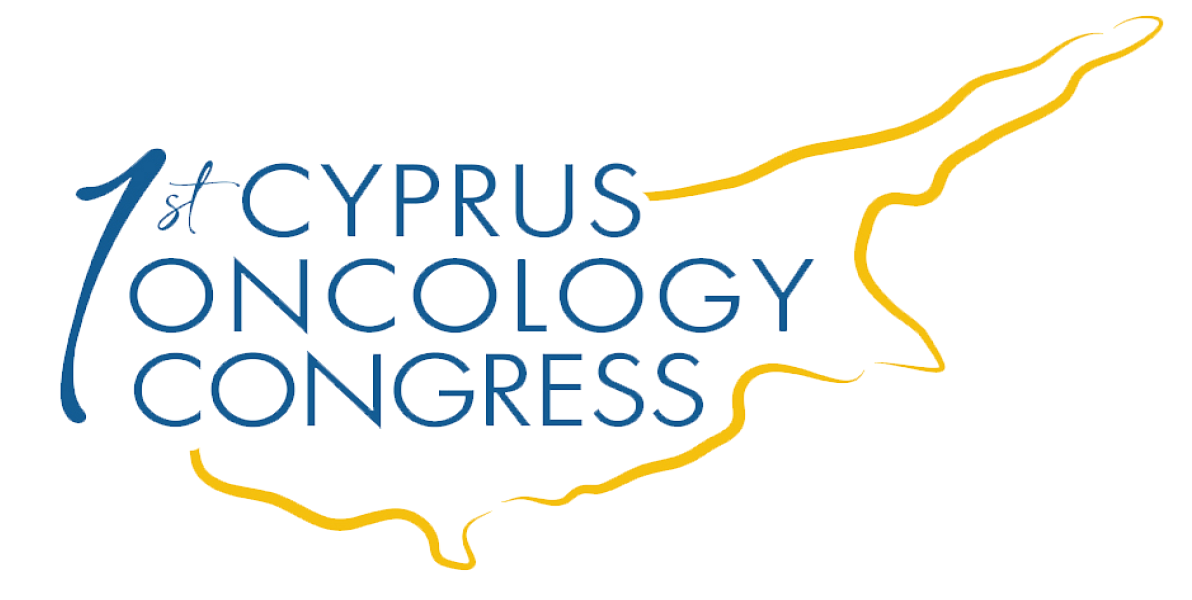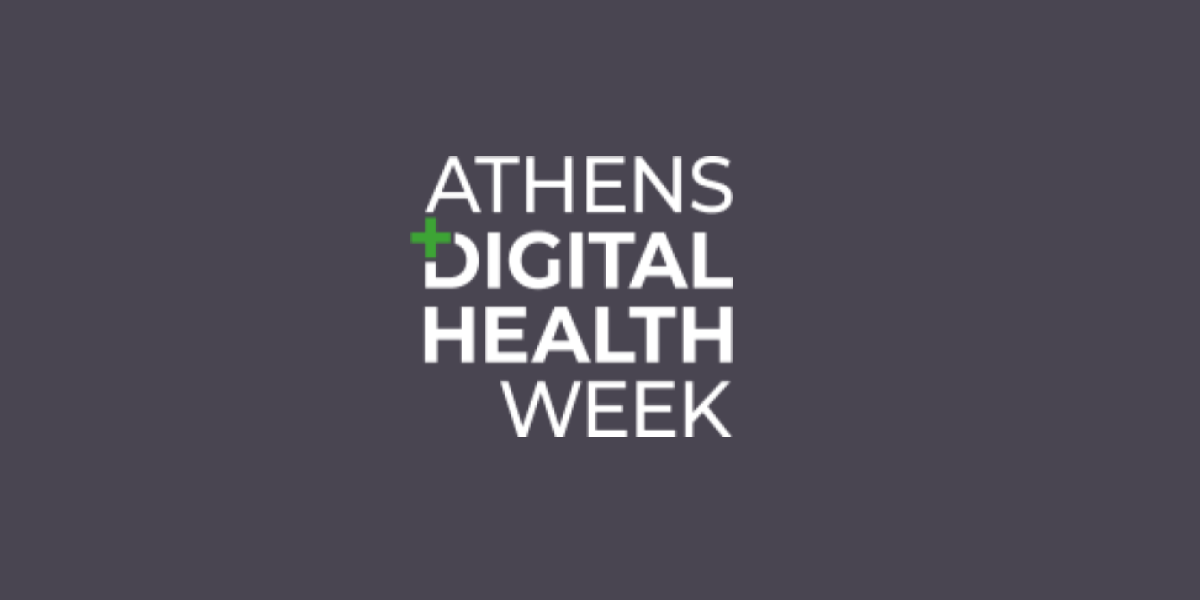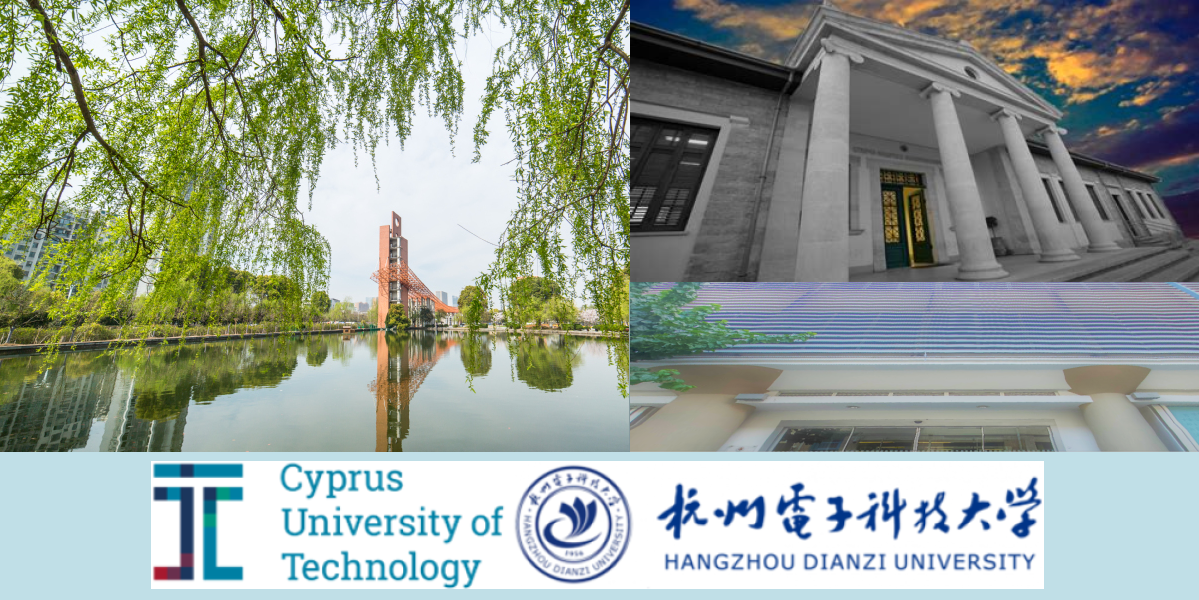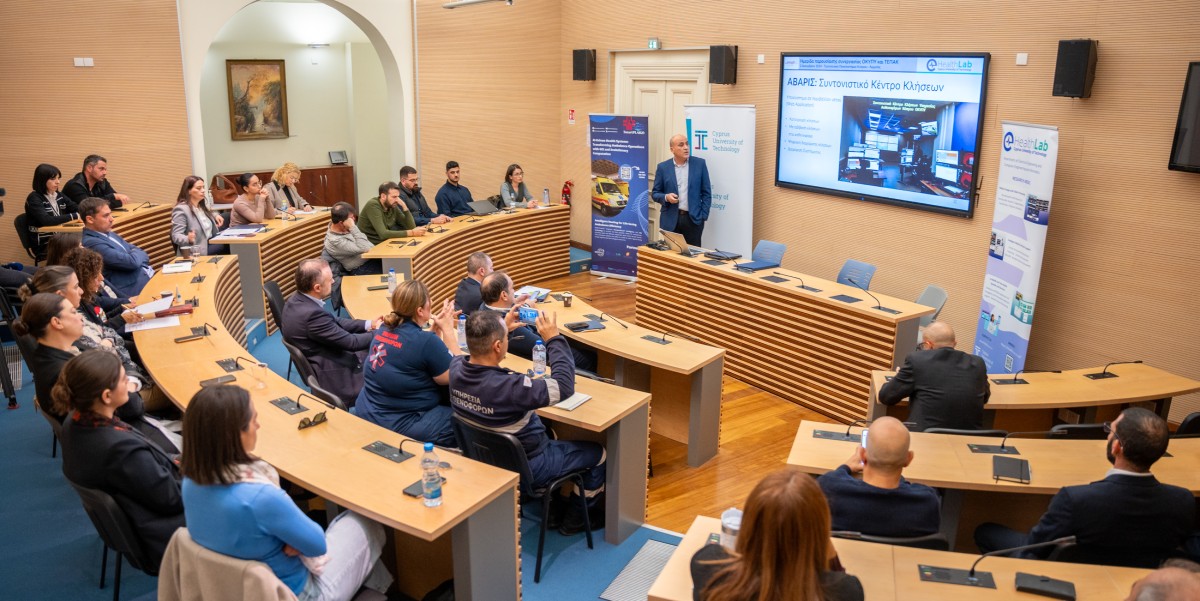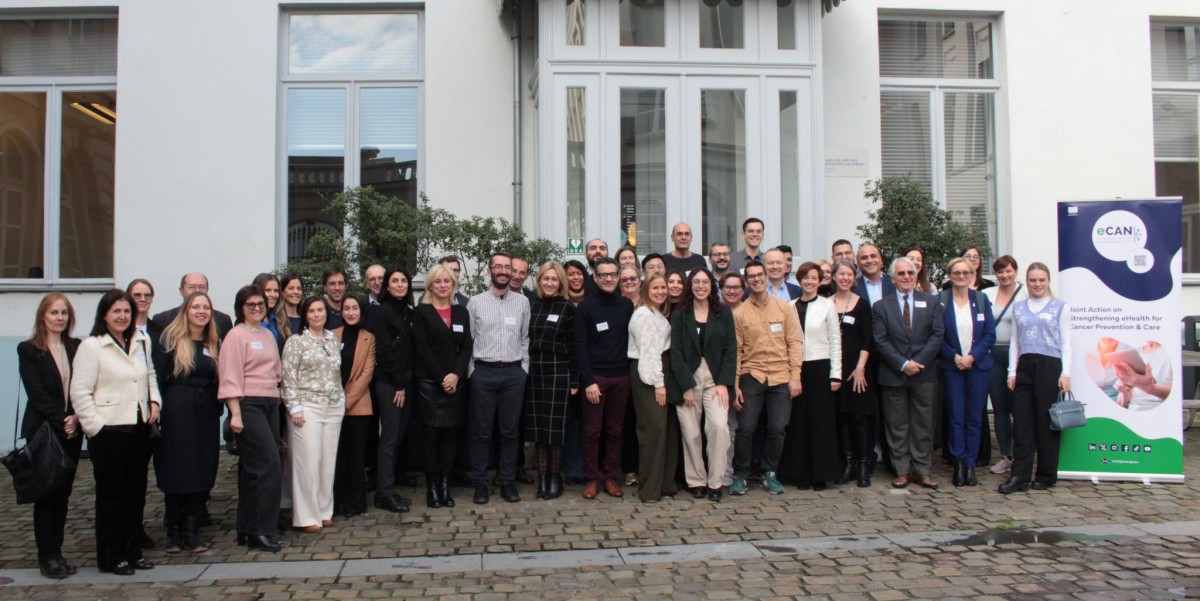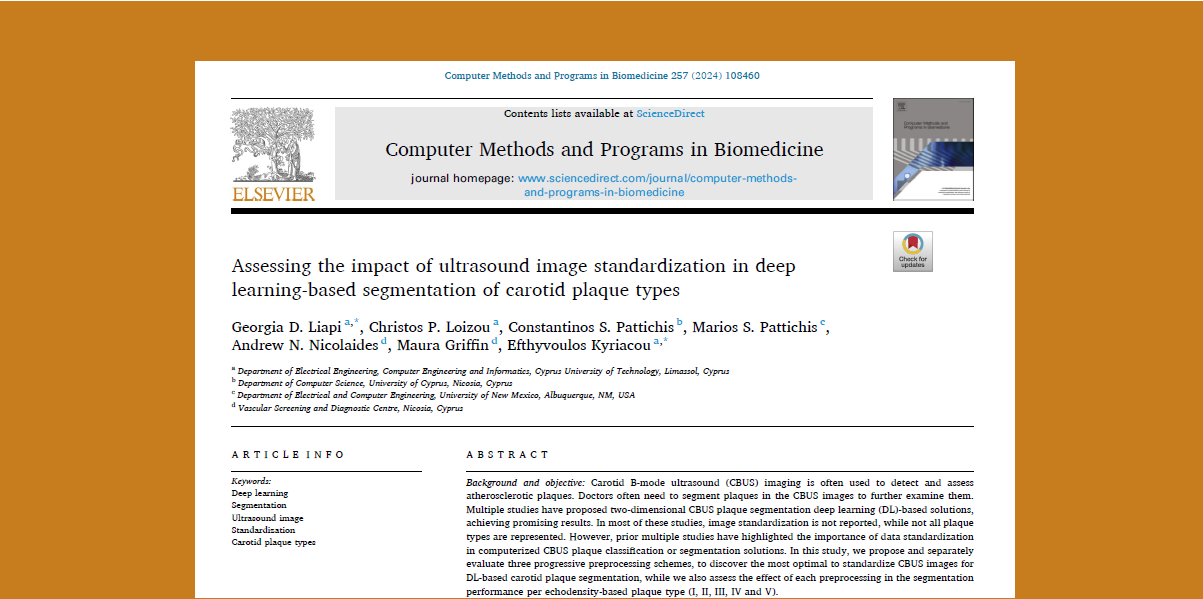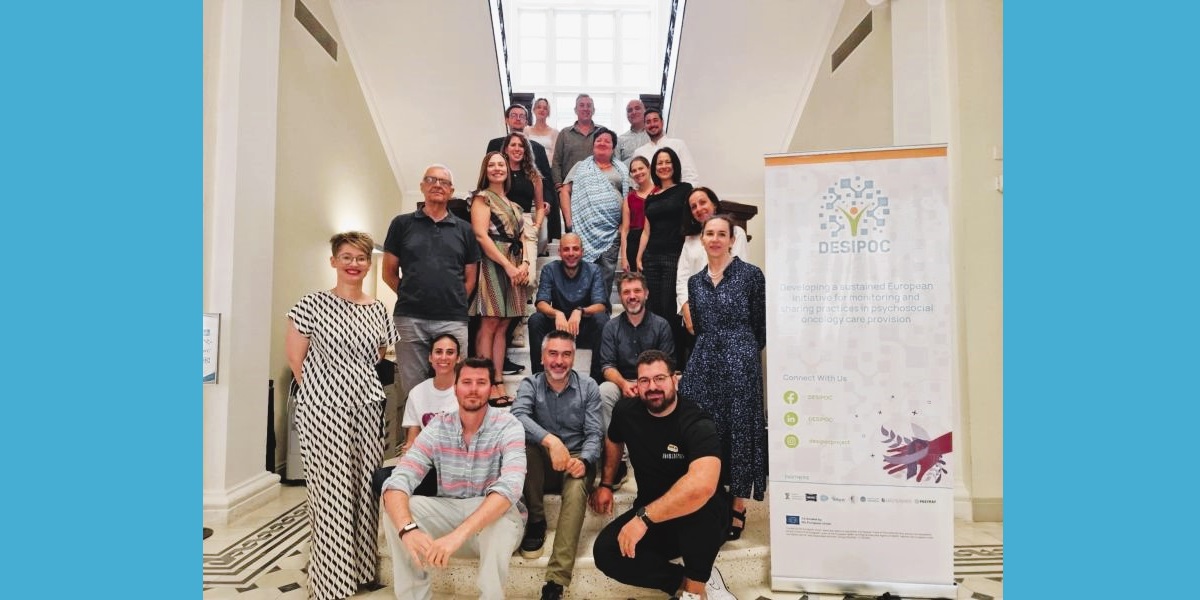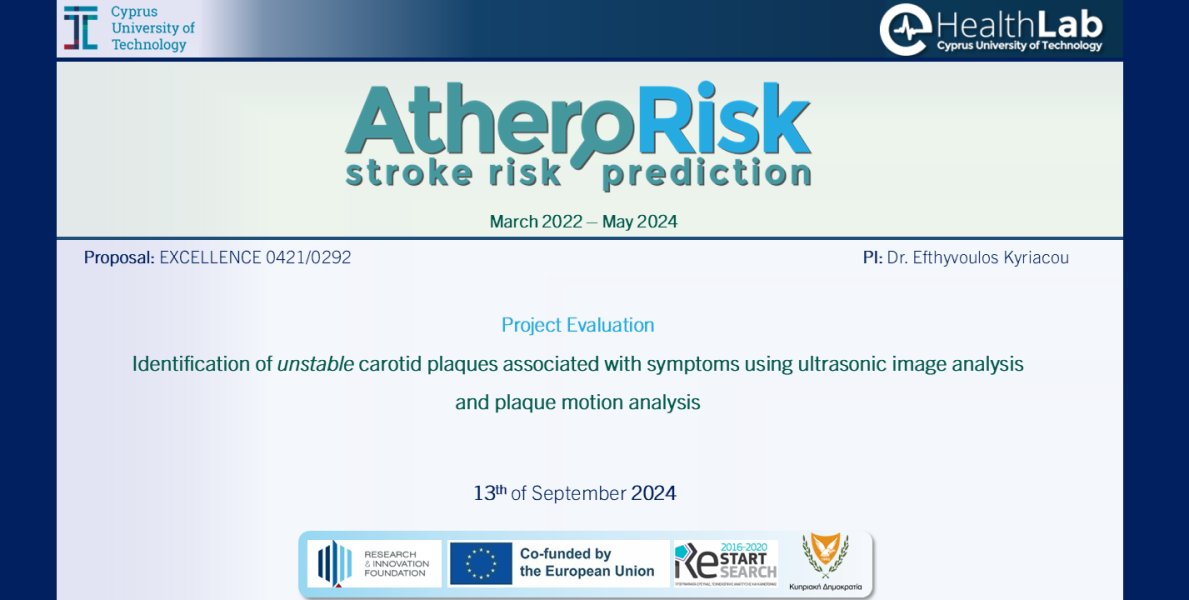We are happy to announce a New Publication (Research Article), where researchers from the ehealthlab@CUT contributed. Experts from CUT, UCY, CYENS and NeHA in Cyprus, along with an expert from the Semmelweis University in Budapest (Hungary) joined forces for the development of a mobile application in order to facilitate citizens in accessing and sharing their health records, directly, from their mobile devices. What is new here, among others, is that this Mobile App uses the (new) Smart Health Links (SHL) Protocol (https://lnkd.in/eaCjEc_S), it communicates with the MyHealth@EU OpenNCP System; CY NCPeH, while it supports multiple languages! The study has been publihed in Frontiers in Digital Health (available onine in February 15th 2025). This is an Open Access Publication. Check out more, here: https://www.frontiersin.org/journals/digital-health/articles/10.3389/fdgth.2025.1542485/full Find or Share this Post on Linkedin:
New Publication – AtheroRisk Software
We are happy to announce our New Publication, presenting the AtheroRisk Software.The project was completed in September 2024, and has been rated as Excellent by an independent European Reviewer/Expert in Radiology!AtheroRisk offers:1) Carotid Ultrasound Image and Video Preprocessing and Analysis2) Cardiac cycle selection 3) Extraction/analysis of meaningful families of plaque imaging features 4)Extraction/analysis of Carotid Plaque Motion 5) AI and XAI pipelines for carotid plaque segmentation, and explainable classification, respectively 6) Stroke Risk Prediction within a future timespan/Stratification of affected individuals, based on risk. Check out the Full Text Paper, here: https://doi.org/10.1007/s42979-025-03666-2 Find or Share this Post on Linkedin:
1st National Oncology Conference – Cyprus
From February 6-8th 2025, the 1st National Oncology Conference – Cyprus, took place in Nicosia and was organised by the Cyprus Society of Oncology. Dr Efthyvoulos Kyriacou participated, presenting the eCAN Joint Action and the Digital Tools developed for Oncology. This initiative focuses on integrating telemonitoring and teleconsultation into cancer care to enhance patient support and healthcare delivery. Through pilot studies, we evaluated the impact of digital tools on newly diagnosed and recurrent cancer patients, uncovering both opportunities and challenges. Our results demonstrate a positive impact on patients’ quality of life, while also highlighting key barriers such as user acceptance, digital literacy gaps, and the need for trained personnel to ensure successful implementation. Find or Share this Post on Linkedin:
Athens Digital Health Week 2025 – Dr Efthyvoulos Kyriacou
Dr Efthyvoulos Kyriacou, participated in the Athens Digital Health Week 2025, which took place in January 27th-31st. There he presented results from the eCAN Joint Action, its technical infrastructure and achievements, that were made possible based on collaboration between the ehealthlab@CUT and colleagues from the AUTH Medical Physics & Digital Innovation Lab. Find or Share this Post on Linkedin:
2 Projects in the MSc in Electronics Science and Technology Program
On the 21st of December 2024, students pursuing the Master’s degree in Electronics Science and Technology, an F2F-Hybrid joint Program between the Department of Electrical Engineering, Computer Engineering and Informatics at Cyprus University of Technology and the Hangzhou Dianzi University, in China, presented a short overview of the work they have completed, so far. Two students are supervised by one of the leaders of the ehealthlab@CUT, the Adjunct Prof. Christos Loizou. Below, we share information on their on-going MSc Degree projects. Jiale W. Hou Impact of preprocessing in TRUS‐based prostate segmentation and MRI–TRUS registration AbstractThis study aims to enhance prostate segmentation in Transrectal Ultrasound (TRUS) axial images, by leveraging image preprocessing strategies, prior to deep learning model utilization, such as image intensity normalization, denoising filtering, and the combination of both. TRUS and Magnetic Resonance Imaging (MRI) sets of images (9 patients), were provided (with manual annotations of the regions of interest in TRUS), by doctors at German Medical Institute, in Cuprus. The TRUS images with prostate efficiently segmented will be registered and fused with the MRI images. Next, with a similar approach, we will test preprocessing methods to improve prostate segmentation in MRI. The results are expected to show a positive impact of preprocessing in prostate segmentation in both TRUS and MRI images, during brachytherapy. Yu Haohan Texture Analysis in Prostate Ultrasound Images Based on Different Pre-processing Schemes AbstractProstate cancer (PCa) is a significant health concern for men worldwide, ne-cessitating reliable diagnostic tools to improve early detection and prognosis. This study focuses on enhancing the diagnostic accuracy of transrectal ultra-sound (TRUS) images for PCa by evaluating the impact of various image preprocessing techniques, including normalization, median filtering, bilateral filtering, Wiener filtering, and non-local means filtering. A dataset of ultra-sound images from ten patients was processed to mitigate noise and optimize texture feature extraction. Texture analysis methods, such as Gray-Level Co-occurrence Matrix (GLCM) and Wavelet-GLSZM, were employed to identify robust features for classification. The results revealed that non-local means filtering (NLMF) outperformed other techniques in noise reduction and image detail preservation, achieving superior metrics for PSNR, SSIM, and CNR. Certain texture features, such as WHLHGLSH, exhibited high stability across preprocessing methods, making them suitable for distinguishing between cancerous and non-cancerous tis-sues. In contrast, features like GLCI showed greater sensitivity to noise, lim-iting their reliability. This study provides a systematic framework for improving TRUS image analysis and highlights the critical role of preprocessing in enhancing diag-nostic accuracy. Future directions include integrating MRI for multi-modal analysis and expanding the study to large-scale, multicenter datasets for diagnostic validation.
AVARIS – Emergency and pre-Hospital care Support System
On the 2nd of December 2024, Cyprus University of Technology and the ΟΚΥπΥ – State Health Services Organisation, in order to strengthen their collaboration in the health sector and benefit society, they signed 3 Cooperation Protocols, in a ceremony at the CUT’s premises. The protocols were signed by the Rector of CUT, Panayiotis Zaphiris , and the General Financial Director of SHSO, Mr. Robertos Karachannas. One of the Protocols formalizes the collaboration between eHealth Lab – Cyprus University of Technology (CUT) and the Cyprus SHSO Ambulance Service, which focuses on the development and implementation of Digital Tools to advance Emergency and pre-Hospital Healthcare. In a presentation, the Head of the Ambulance Service Directorate of OKYpY, Ms. Riana Constantinou described the current state of the Emergency and pre-Hospital Healthcare in Cyprus, and she strongly communicated her belief that the Digital Transformation of the Ambulance Service will contribute the most to saving human lives, constituing also a blessing for the entire country. The AVARIS Emergency and pre-Hospital care Support System was presented by our young and talented Research Associate at ehealthlab@CUT, Stelios Mappouras, the main developer of the AVARIS System, who was particularly praised by Mrs Constantinou for working 24/7 to develop a complete and seamless system. Outside the CUT premises, an ambulance was showcased, equipped with cutting-edge technologies for the provision of emergency care. Stelios is actively mantaining and advancing the AVARIS system 24/7 in close communication with ΟΚΥπΥ – State Health Services Organisation. In addition to this, the SmartPlaigo project, an ongoing funded initiative in collaboration with ERATOSTHENES Centre of Excellence and Stremble Ventures LTD, focusing on the automated management of ambulance traffic, was briefly presented. The Head of the ehealthlab@CUT, Efthyvoulos Kyriacou, Assist. Prof. at the Department of Electrical and Computer Engineering, and Informatics, stated that this collaboration with the Ambulance Service is an important way for CUT to contribute to meet the needs of society. The ehealthlab@CUT group members are proud of their Leader, who always inspires them to create impactful solutions and help meet the society’s needs. Efthyvoulos Kyriacou Assistant Professor at Cyprus University of Technology Find or Share this Post on Linkedin:
eCAN Final Conference in Brussels
On the 28-29th of November 2024, the eHealth Lab at Cyprus University of Technology (CUT) travelled to Brussels, to participate in the final Conference of the eCAN Joint Action, which attracted >60 attendees. The final eCAN results were presented in detail, and discussed, reflecting the work done in all Work Packages, in sessions coordinated by Marc Van den Bulcke from Sciensano. Researchers and healthcare professionals in eCAN had meaningful discussions, revealing the positive impact of telemedicine and teleconsultation in cancer care. Meanwhile, it was overall recognized that there is space for further improvement and recommendations to effectively integrate telemedicine in cancer care plans. Two years of hard work enabled the verification of 16 recommendations and a roadmap of actions. Efthyvoulos Kyriacou presented the work done in WP7, where the ehealthlab@CUT Researchers developed the ‘eCAN mobile application’, intended for patients, and a Web ‘Dashboard’ for use by doctors, for Telemonitoring, in the presence of the president of the National e-Health Authority of Cyprus (NeHA CY), Christos Schizas. Key WP7 aspects presented involved key stakeholders, the system components and architecture, the data flow and ecosystem, and data compliance. Importantly, during the 2nd day, the workplan for the eCAN Plus project was presented. The ehealthlab@CUT members would like to thank all partners for their effective collaboration, and are looking forward to the continuation of this great effort. Find or Share this Post on Linkedin:
New Publication funded by AtheroRisk
During AtheroRisk, we conducted a study, where we trained and tested a pre-released DL segmentation model in automated carotid plaque annotation in 2D B-Mode ultrasound images. Importantly, we emphasized in image standardization and its contribution to reproducible and reliable plaque type (I to V) segmentations, which overall witnessed improvements when segmented in their fully-preprocessed version compared to the original (as extracted by the ultrasound equipment). Demanding plaques types, such as type I were also benefited from full preprocessing (image resolution and intensity normalization, followed by speckle noise removal). We are happy that this study has been recently published. Find the study here. The carotid ultrasound image preprocessing (standardization steps) are based on previous well-recognized studies: S.K. Kakkos, A.N. Nicolaides, E. Kyriacou, C.S. Pattichis, G. Geroulakos, Effect of zooming on texture features of ultrasonic images, Cardiovasc. Ultrasound 4 (1) (Dec. 2006) 8, https://doi.org/10.1186/1476-7120-4-8. A.N. Nicolaides, S.K. Kakkos, M. Griffin, M. Sabetai, et al., Effect of image normalization on carotid plaque classification and the risk of ipsilateral hemispheric ischemic events: results from the asymptomatic carotid stenosis and risk of stroke study, Vascular 13 (4) (Jun. 2005) 211–221, https://doi.org/10.1258/rsmvasc.13.4.211. C.P. Loizou, C.S. Pattichis, M. Pantziaris, T. Tyllis, A. Nicolaides, Quality evaluation of ultrasound imaging in the carotid artery based on normalization and speckle reduction filtering, Med. Bio. Eng. Comput. 44 (5) (May 2006) 414–426, https://doi.org/10.1007/s11517-006-0045-1.
Kick-off Meeting for the DESIPOC Project
The Kick off meeting of the DESIPOC Project was held on the 16-17th of October, 2024, in a hybrid event. DESIPOC will be a 2-year project, funded by the Cyprus Research and Innovation Foundation (RIF) and co-funded by the EU4Health programme. DESIPOC will aim to develop and pilot a knowledge hub, virtual observatory and training system in participating countries as proof-of-concept that will collect, organize, and disseminate knowledge, best practices, and resources related to stakeholders’ strategies used and needs towards psychosocial oncology care provision with an emphasis on advancing screening efficacy for mental health challenges, communication, knowledge, skills whilst recognizing and tackling systemic barriers and facilitators for providing care to patients, carers, families and Health Care Providers. BSiH Lab @CUT is the Principal Investigator Funding: Co-funded by the EU4Health Programme (Project Number: 101161339) FIND OUT MORE HERE: DESIPOC Webpage
The AtheroRisk Software independently rated as Excellent
AtheroRisk, our 2-year Research Project, during which we developed our Carotid Ultrasound Image and Video Analysis Software for Stroke Risk Stratification, successfully passed its formal Evaluation and Review Process, as required by its corresponding funding source, the Research and Innovation Foundation, in Cyprus. 🔍 An independent foreign European Reviewer, MD and Full Professor in Medical Diagnostics, Medical Imaging and Radiotherapy, was appointed by RIF to rate the quality of our research Software, its workflow and associated results, its underlying technological and methodological aspects, and give a final judgement, in a formal online group meeting, around mid-September 2024. AtheroRisk has officially received a ‘Category A- Excellent‘. This was made possible because it was led by Dr Efthyvoulos Kyriacou (PI and Leader of the ehealthlab@CUT), and supported by Prof. Andrew Nicolaides MS, FRCS, PhD (Hon) and his Team of Clinical Experts (Clininal and Ethics Committee), who offered us brilliant guidance in medical data quality aspects, and the appropriate carotid ultrasound video acquisition protocol, and who applied useful software evaluations, in every step, to help us produce a high quality software solution; a software which was developed based on years of research led by Dr Efthyvoulos Kyriacou and Dr Christos P. Loizou, and with the dedication and excellent work of Michalis Gemenaris (full-stack development young researcher at ehealthlab@CUT) and Georgia Liapi (PhD student working on carotid ultrasound video analysis). It has been an honour for the ehealthlab@CUT Team Members to have collaborated 📎 with all the Clinicians, Experts and Senior Researchers in the AtheroRisk Consortium (from Cyprus University of Technology, Frederick University, CYENS Centre of Excellence, University of Cyprus, UOA School of Medicine, CING and the Americal Medical Center in Cyprus), for such a meaningful purpose 💡. This has been the birth of AtheroRisk. The Software keeps growing. Find or Share this Post on Linkedin:

